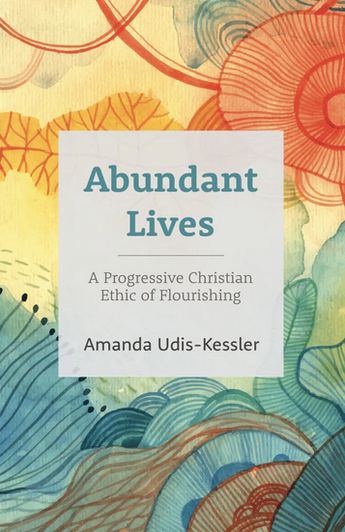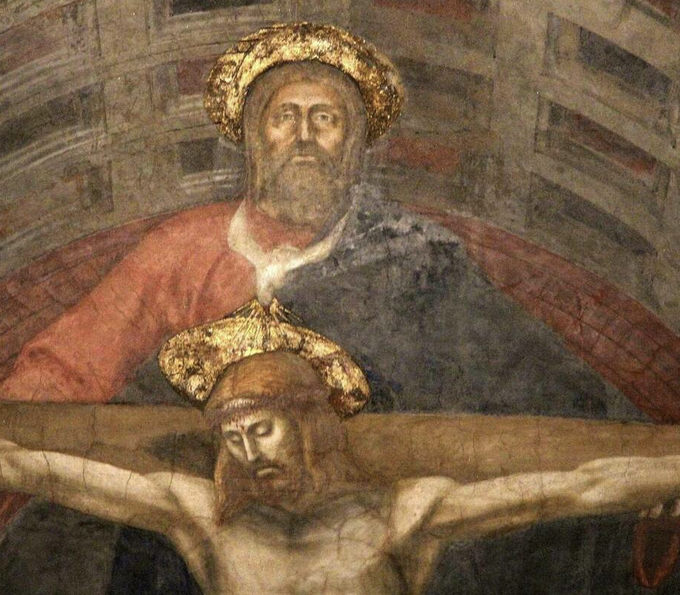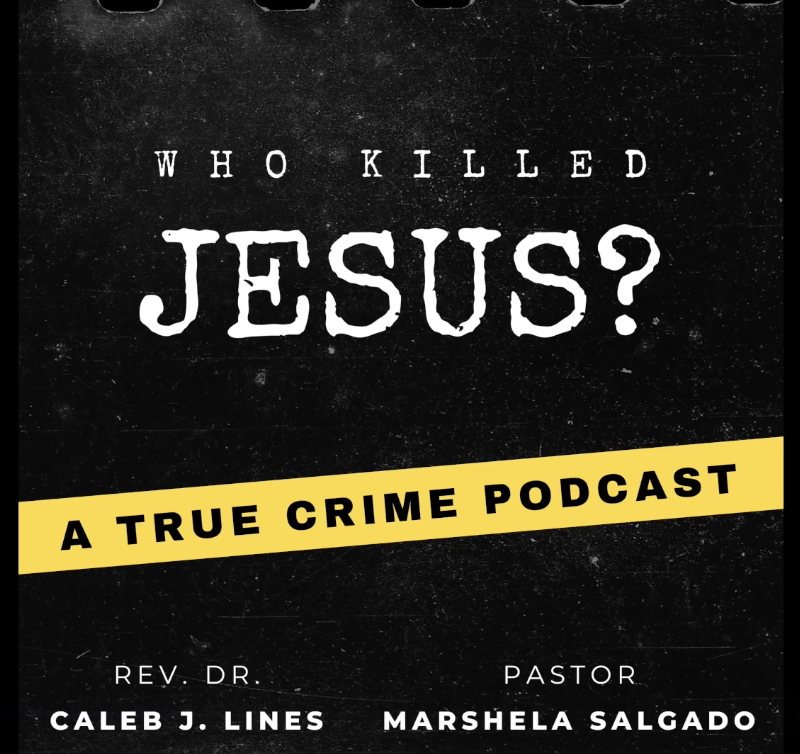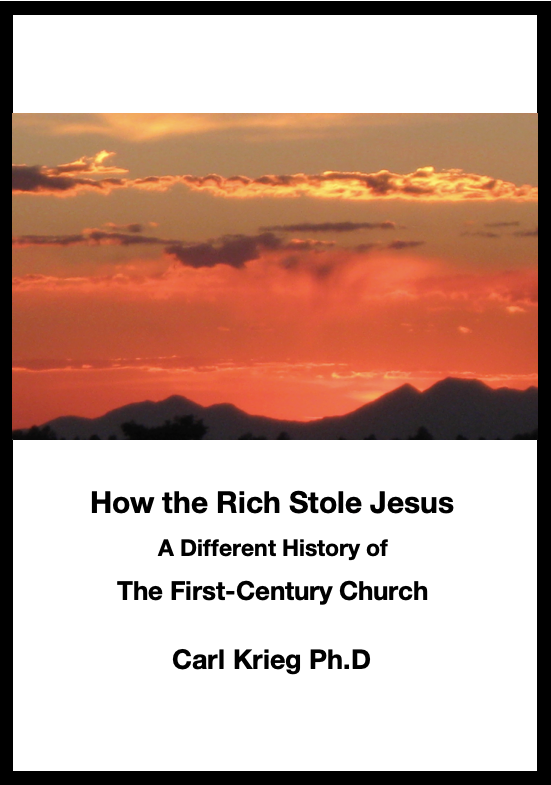Many of us are introduced to Jesus at a young age, and the version of him we initially encounter is quite often an incomplete version of the historical figure. Over time, many have begun to question those curated snapshots of the Nazarene and have rediscovered Jesus as a man, a mystic, a wisdom teacher, and a blueprint for how to be a better human being, among other things.
Abundant Lives: A Progressive Christian Ethic of Flourishing invites sociologically informed engagement in human well-being based on Jesus’ command to love God, our neighbors, ourselves, and our enemies.
All atonement theories get it wrong by substituting beliefs about Jesus for the way (his virtues, values, and practices) of Jesus that he taught us by word and deed.
Jesus was not crucified for telling people to love God and our neighbors. He was killed for challenging the authorities of that time. He challenged the Jewish authorities, and he challenged the Roman authorities.
The central focus of Jesus’ message was to announce the imminent coming of the kingdom of God. This is what he was sent to do. (Luke 4: 43-44) This kingdom would be on earth for the people of Israel. (Matthew 10: 5-8) Although Jesus gives few details on how this kingdom would operate.
(Moving from “Ought” to “How To”)
So what about loving our enemies? What do we normally feel, what do others who have modeled destructive behavior and attitudes expect us to feel and what can we possibly feel? Why should we choose not to feel what virtually everyone expects us to feel?
2000 years ago, a murder was committed, and we know the victim well. But who really killed Jesus? The Church has given us one answer, but is that the only explanation?
Year A - Set 1
The lectionary-based TEENTEXT HIGH SCHOOL resource helps older youth connect the text on the page with events in their daily lives. These resources guide students into the text, and through a series of open-ended, text-related questions, they begin to see the Bible as a vital, dynamic relevant resource--one that can inform them throughout their lives.
Year B - Set 1
The lectionary-based TEENTEXT HIGH SCHOOL resource helps older youth connect the text on the page with events in their daily lives. These resources guide students into the text, and through a series of open-ended, text-related questions, they begin to see the Bible as a vital, dynamic relevant resource--one that can inform them throughout their lives.
Year C - Set 1
The lectionary-based TEENTEXT HIGH SCHOOL resource helps older youth connect the text on the page with events in their daily lives. These resources guide students into the text, and through a series of open-ended, text-related questions, they begin to see the Bible as a vital, dynamic relevant resource--one that can inform them throughout their lives.
Years A, B, C - Set 2
The lectionary-based TEENTEXT HIGH SCHOOL resource helps older youth connect the text on the page with events in their daily lives. These resources guide students into the text, and through a series of open-ended, text-related questions, they begin to see the Bible as a vital, dynamic relevant resource--one that can inform them throughout their lives.
Year A - Set 2
The lectionary-based TEENTEXT HIGH SCHOOL resource helps older youth connect the text on the page with events in their daily lives. These resources guide students into the text, and through a series of open-ended, text-related questions, they begin to see the Bible as a vital, dynamic relevant resource--one that can inform them throughout their lives.
Year B - Set 2
The lectionary-based TEENTEXT HIGH SCHOOL resource helps older youth connect the text on the page with events in their daily lives. These resources guide students into the text, and through a series of open-ended, text-related questions, they begin to see the Bible as a vital, dynamic relevant resource--one that can inform them throughout their lives.
Year C - Set 2
The lectionary-based TEENTEXT HIGH SCHOOL resource helps older youth connect the text on the page with events in their daily lives. These resources guide students into the text, and through a series of open-ended, text-related questions, they begin to see the Bible as a vital, dynamic relevant resource--one that can inform them throughout their lives.
Year A - Set 1
The lectionary-based TEENTEXT MIDDLE SCHOOL resource helps older youth connect the text on the page with events in their daily lives. These resources guide students into the text, and through a series of open-ended, text-related questions, they begin to see the Bible as a vital, dynamic relevant resource--one that can inform them throughout their lives.
Yr B - Set 1
The lectionary-based TEENTEXT MIDDLE SCHOOL resource helps older youth connect the text on the page with events in their daily lives. These resources guide students into the text, and through a series of open-ended, text-related questions, they begin to see the Bible as a vital, dynamic relevant resource--one that can inform them throughout their lives.
Year C - Set 1
The lectionary-based TEENTEXT MIDDLE SCHOOL resource helps older youth connect the text on the page with events in their daily lives. These resources guide students into the text, and through a series of open-ended, text-related questions, they begin to see the Bible as a vital, dynamic relevant resource--one that can inform them throughout their lives.
Years A, B, C - Set 1
The lectionary-based TEENTEXT MIDDLE SCHOOL resource helps older youth connect the text on the page with events in their daily lives. These resources guide students into the text, and through a series of open-ended, text-related questions, they begin to see the Bible as a vital, dynamic relevant resource--one that can inform them throughout their lives.
Year A - Set 2
The lectionary-based TEENTEXT MIDDLE SCHOOL resource helps older youth connect the text on the page with events in their daily lives. These resources guide students into the text, and through a series of open-ended, text-related questions, they begin to see the Bible as a vital, dynamic relevant resource--one that can inform them throughout their lives.
Yr B - Set 2
The lectionary-based TEENTEXT MIDDLE SCHOOL resource helps older youth connect the text on the page with events in their daily lives. These resources guide students into the text, and through a series of open-ended, text-related questions, they begin to see the Bible as a vital, dynamic relevant resource--one that can inform them throughout their lives.
Year C - Set 2
The lectionary-based TEENTEXT MIDDLE SCHOOL resource helps older youth connect the text on the page with events in their daily lives. These resources guide students into the text, and through a series of open-ended, text-related questions, they begin to see the Bible as a vital, dynamic relevant resource--one that can inform them throughout their lives.
Years A, B, C - Set 2
The lectionary-based TEENTEXT MIDDLE SCHOOL resource helps older youth connect the text on the page with events in their daily lives. These resources guide students into the text, and through a series of open-ended, text-related questions, they begin to see the Bible as a vital, dynamic relevant resource--one that can inform them throughout their lives.
A five-part fictional story
A five-part fictional story set in the early 1990s about Reverend Paul Graham and his congregation, Grace United Church of Christ.
Year A - Set 1
This RBTL resource follows the Revised Common Lectionary with text selections for Year A - Set 1. There are 52 lessons the year.
A five-part fictional story
A five-part fictional story set in the early 1990s about Reverend Paul Graham and his congregation, Grace United Church of Christ.
A Critical Examination of the 'He Gets Us' Superbowl Commercial
The Superbowl Commercial "He Gets Us" misses the mark by presenting a narrow view of Christianity where narcissism is disguised as altruism.
A five-part fictional story
A five-part fictional story set in the early 1990s about Reverend Paul Graham and his congregation, Grace United Church of Christ.
I. Be completely humble and gentle, be patient forgiving one another in love
A Different History of the First-Century Church
The message was simple. Love God. Love your neighbor. Join hands in a fellowship of peace and justice. It was an invitation to fulfillment, accepted by many.
Jesus’ “Revolutionary” Teachings
In the context of the Christian faith tradition — is the “good news” that one might assert to be at the heart of the gospel message just too idealistic for what we might be able to instead empirically see happening all around us on a daily basis?
























